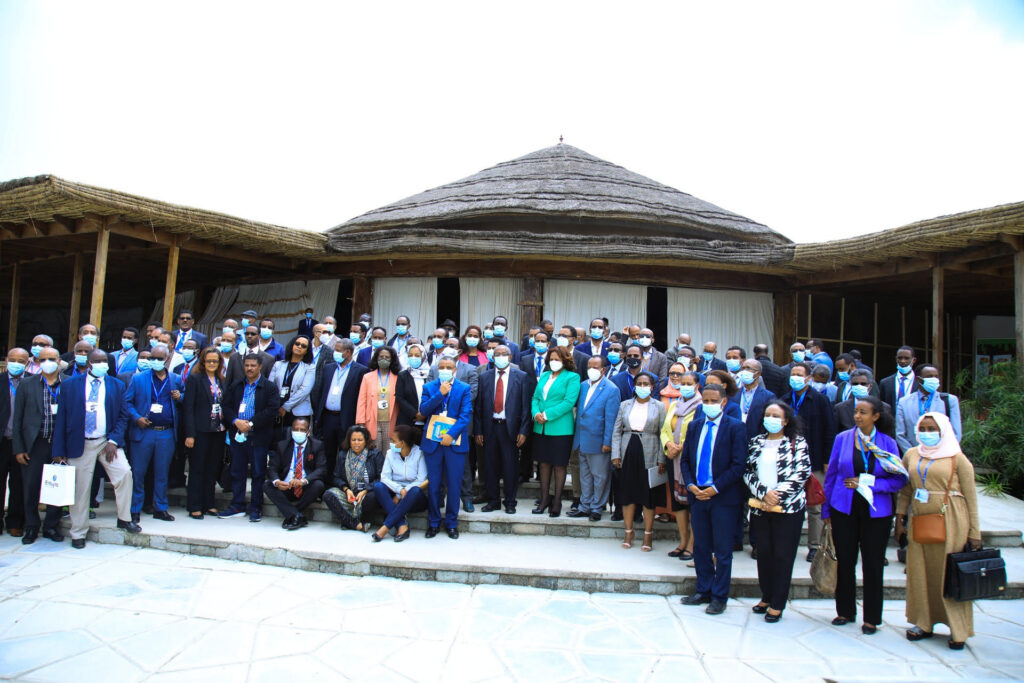The second phase of the Beautifying Sheger Project, a Riverside Green Development scheme in Addis Ababa has begun involving the construction of squares and roadside greenery works.
The construction being undertaken by Jiangsu Nantong Sanjian Construction Group covers 179,000 Sqm piece of land situated adjacent to the premises of the Ministry of Foreign Affairs and on the National Palace Garage.
It mainly involves the construction of a central square including a science and technology museum, a children’s amusement park, a sports center, a waterfront, auxiliary buildings, and a domed theatre as well as supporting facilities such as roads, pavement, ornamental lighting, and landscaping, among others.
The Addis Ababa Riverside Green Development Project, entitled “Sheger Beautifying Project”, aims to clean rivers, expand open public recreation areas and create more jobs in the capital.
The project was launched in February last year by Prime Minister Abiy Ahmed, and it is expected to be implemented within a span of three years.
The first phase of the project is under construction on a 27 ha piece of land across from the Sheraton Hotel and it is nearing completion.
Source: Construction Review Online

